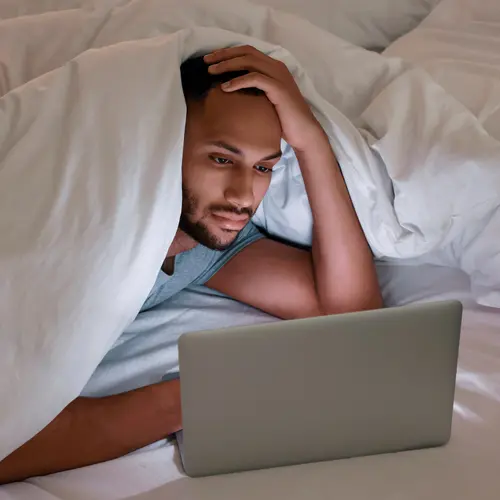You have a new gadget that measures your sleep. It tells you how much and how well you snoozed. This data can help you score a better night’s rest, right? Not so fast. Some experts say that these sleep trackers don’t offer a true picture and may actually undermine your slumber.
If you have one, it helps to know how to interpret what it tells you -- and the best ways to use it.
How Do Sleep Trackers Work?
Most sleep trackers use technology designed to sense motion.
Many are built into wearable fitness trackers, such as watches, rings, and wristbands. “Most of these use accelerometers,” says Alan Schwartz, MD, director of the Sleep Disorders Center at Johns Hopkins Bayview Medical Center. Other trackers use sensors, such as a thin strip that you place on your bed.
“The premise is that a lack of movement is a marker of sleep,” Schwartz says.
Certain trackers also measure your breathing, body temperature, and heart rate, factors that change as you move through different stages of sleep. For example, your heartbeat gradually slows down as you move from the early stages of sleep to the deepest part, called slow-wave sleep. But it tends to speed up as you enter rapid eye movement (REM) slumber. The trackers use this data to determine how long you spend in each stage.
Each company has their own formula for breaking down your slumber.
How Accurate Are Sleep Trackers?
There’s plenty of room for error. “These devices analyze your behavior,” says Jerald Simmons, MD, the founding director of Comprehensive Sleep Medicine Associates in Houston. “They can’t tell if you’re really asleep.”
For example, if you’re quietly watching television in bed, a tracker may report that you’re snoozing. “The results can be misleading,” Simmons says. In fact, some studies found that popular sleep trackers overestimate sleep by anywhere from 9 minutes to more than an hour.
When it comes to monitoring sleep stages, things get even more blurry. Many people use the stage breakdown as measure of how well they slept. But there’s not enough research on the accuracy of this information, or what it means for your overall sleep quality.
“No one really knows the effect of getting 30 versus 40 versus 50 minutes of slow-wave sleep,” says Nalaka Gooneratne, MD, a sleep researcher at the University of Pennsylvania’s Perelman School of Medicine. “Everyone is different.”
What’s more, certain medical conditions can throw off sleep trackers. For example, if you have an irregular heartbeat or you take a beta-blocker for high blood pressure, that can affect your heart rate, Gooneratne says.
The Downsides
In some cases, sleep trackers may do more harm than good. For one, it may give you a false sense of security.
“You may have brief interruptions in your sleep that a tracker won’t catch,” Simmons says. This can mean you’re behind on your rest and leave you feeling exhausted. But because your weekly report says that you logged a solid 7 to 8 hours, you may not seek the help you need.
Keeping tabs on a daily log of your shut-eye could also lead to anxiety. “For some people, the tracking can get a little overboard,” says Kelly Baron, PhD, a sleep researcher at the University of Utah School of Medicine. In her research, she found that focusing too much on your numbers can get in the way of your slumber. For example, you may worry about scoring a solid 8 hours of sleep, so you go to bed extra early. But if you turn in when you’re not tired, you’re more likely to toss and turn throughout the night.
Baron says signs that you may need to step away from the sleep tracker include:
- You’re focused on hitting certain number, like hours slept.
- You worry about small awakenings, even ones that you don’t remember.
What’s the Best Way to Use a Sleep Tracker?
Despite the need for clarity on what the data mean, the devices do have benefits.
“It can shine a light on your overall sleep patterns,” Schwartz says. You’ll gain insight on your habits and how they affect your slumber. You can use that device to your advantage in the following ways.
- Get a general idea of how much you’re sleeping. More than one-third of Americans don’t get enough shut-eye on a regular basis. But many don’t realize it. “A sleep tracker can give you some awareness whether you’re close to the recommended amount of sleep,” Gooneratne says. Although those numbers may not be 100% accurate, you can use them as a rough guide.
- Notice big changes. If your data reveal that you started moving around a lot, mention it to your doctor. That may be a sign of a sleep issue, such as apnea or restless legs syndrome, Simmons says.
- Look for patterns. You can notice trends, such as how much you snooze on weekdays vs. weekends. Or what time is the best bedtime. “I realized that I’m never going to get 7 hours of sleep if I don’t go to bed before 10:30 on workdays,” Baron says. “Of course, I knew that, but seeing it in my data is another story.”

